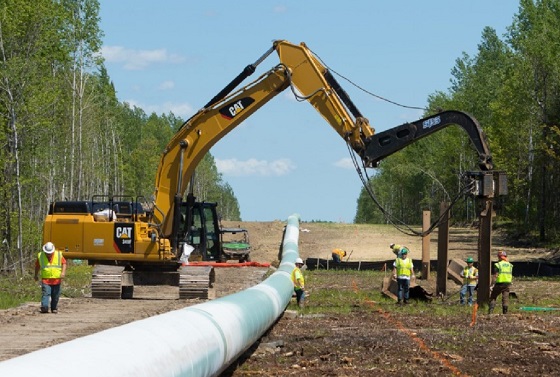Alberta
Holiday Mental Health – It’s Okay if it’s not the Most Wonderful Time of the Year

The stores are stocking up on red and green everything, the shelves are lined with ornaments and dancing reindeer and you can’t ignore it even if you want to – the holiday season is nearly here.
For many, Christmas means celebrations, decorations, rum and eggnog and time with family. From sledding and snow days to hanging the lights and putting up the tree, there are lots of things to love about the holiday season.
However, for others, there are lots of reasons why it might not be the most wonderful time of the year, and that’s okay too.
 While the claim that suicide rates spike during the holiday season has been repeatedly misused and ultimately disproven as the “holiday suicide myth” (1), the holiday blues are a very real phenomenon. In the midst of the celebratory season, feelings of anxiety, isolation, depression and grief can be overwhelming, particularly when combined with additional stressors such as strained personal relationships and financial uncertainty. Not everyone is looking forward to Christmas, and in the midst of the 2020 global COVID-19 pandemic, which has left many people without employment and unable to travel, the emotional toll of this holiday season promises to be increasingly complex.
While the claim that suicide rates spike during the holiday season has been repeatedly misused and ultimately disproven as the “holiday suicide myth” (1), the holiday blues are a very real phenomenon. In the midst of the celebratory season, feelings of anxiety, isolation, depression and grief can be overwhelming, particularly when combined with additional stressors such as strained personal relationships and financial uncertainty. Not everyone is looking forward to Christmas, and in the midst of the 2020 global COVID-19 pandemic, which has left many people without employment and unable to travel, the emotional toll of this holiday season promises to be increasingly complex.
The Canadian Mental Health Association (CMHA), Alberta Division released a statement regarding coping with the holidays during these unusual and uncertain times.
“The pandemic has disrupted many yearly holiday traditions and has increased collective anxieties and social isolation. As we look for alternative ways to spread joy and take part in new ways of celebrating the holidays, Albertans must focus on their mental health during an already busy and often overwhelming season.”
According to the CMHA, these are some simple but useful ways to maintain your mental health during the holidays.
Focus on what you can control. Like the food you eat, the time you have a shower or the media you consume.
Anxiety is normal. During times of crisis it is normal to feel increased anxiety. Acknowledge those feelings are valid.
 Limit your consumption of media. Allow yourself time to focus on activities you enjoy instead. Reading, listening to music or meditating are all great ways to de-stress when you are unable to attend regular holiday festivities.
Limit your consumption of media. Allow yourself time to focus on activities you enjoy instead. Reading, listening to music or meditating are all great ways to de-stress when you are unable to attend regular holiday festivities.
Remain connected to your body. Exercising regularly, getting outside, eating well and resting will support positive mental health.
Be open with your support system. Identify supportive people you can connect with if you begin to feel overwhelmed or lonely.
Reach out for help. If you or a loved one needs help, call 211 (Alberta only) or the Mental Health Help Line at 1-877-303-2642.
As the holidays arrive amid the fog of the ongoing global pandemic, remember – it’s okay to feel confused, frightened, and uncertain of the future. You are not alone, and there are always resources available to help you and your loved ones through these complicated times. Be gentle with yourself and others, ask for help if you need it, and above all, be kind.
For more stories, visit Todayville Calgary.
Alberta
READ IT HERE – Canada-Alberta Memorandum of Understanding – From the Prime Minister’s Office

From Energy Now
Prime Minister of Canada
Alberta
Falling resource revenue fuels Alberta government’s red ink

From the Fraser Institute
By Tegan Hill
According to this week’s fiscal update, amid falling oil prices, the Alberta government will run a projected $6.4 billion budget deficit in 2025/26—higher than the $5.2 billion deficit projected earlier this year and a massive swing from the $8.3 billion surplus recorded in 2024/25.
Overall, that’s a $14.8 billion deterioration in Alberta’s budgetary balance year over year. Resource revenue, including oil and gas royalties, comprises 44.5 per cent of that decline, falling by a projected $6.6 billion.
Albertans shouldn’t be surprised—the good times never last forever. It’s all part of the boom-and-bust cycle where the Alberta government enjoys budget surpluses when resource revenue is high, but inevitably falls back into deficits when resource revenue declines. Indeed, if resource revenue was at the same level as last year, Alberta’s budget would be balanced.
Instead, the Alberta government will return to a period of debt accumulation with projected net debt (total debt minus financial assets) reaching $42.0 billion this fiscal year. That comes with real costs for Albertans in the form of high debt interest payments ($3.0 billion) and potentially higher taxes in the future. That’s why Albertans need a new path forward. The key? Saving during good times to prepare for the bad.
The Smith government has made some strides in this direction by saving a share of budget surpluses, recorded over the last few years, in the Heritage Fund (Alberta’s long-term savings fund). But long-term savings is different than a designated rainy-day account to deal with short-term volatility.
Here’s how it’d work. The provincial government should determine a stable amount of resource revenue to be included in the budget annually. Any resource revenue above that amount would be automatically deposited in the rainy-day account to be withdrawn to support the budget (i.e. maintain that stable amount) in years when resource revenue falls below that set amount.
It wouldn’t be Alberta’s first rainy-day account. Back in 2003, the province established the Alberta Sustainability Fund (ASF), which was intended to operate this way. Unfortunately, it was based in statutory law, which meant the Alberta government could unilaterally change the rules governing the fund. Consequently, by 2007 nearly all resource revenue was used for annual spending. The rainy-day account was eventually drained and eliminated entirely in 2013. This time, the government should make the fund’s rules constitutional, which would make them much more difficult to change or ignore in the future.
According to this week’s fiscal update, the Alberta government’s resource revenue rollercoaster has turned from boom to bust. A rainy-day account would improve predictability and stability in the future by mitigating the impact of volatile resource revenue on the budget.
-

 Alberta4 hours ago
Alberta4 hours agoFrom Underdog to Top Broodmare
-

 Energy1 day ago
Energy1 day agoPoilievre says West Coast Pipeline MOU is no guarantee
-

 Energy1 day ago
Energy1 day agoWill the New West Coast Pipeline MoU Lead to Results? Almost Certainly Not According to AI
-

 Alberta1 day ago
Alberta1 day agoWest Coast Pipeline MOU: A good first step, but project dead on arrival without Eby’s assent
-

 Carbon Tax1 day ago
Carbon Tax1 day agoCanadian energy policies undermine a century of North American integration
-

 Alberta1 day ago
Alberta1 day agoCarney forces Alberta to pay a steep price for the West Coast Pipeline MOU
-

 Alberta1 day ago
Alberta1 day agoAlberta and Ottawa ink landmark energy agreement
-

 Energy16 hours ago
Energy16 hours agoOttawa and Alberta’s “MOU” a step in the right direction—but energy sector still faces high costs and weakened competitiveness



